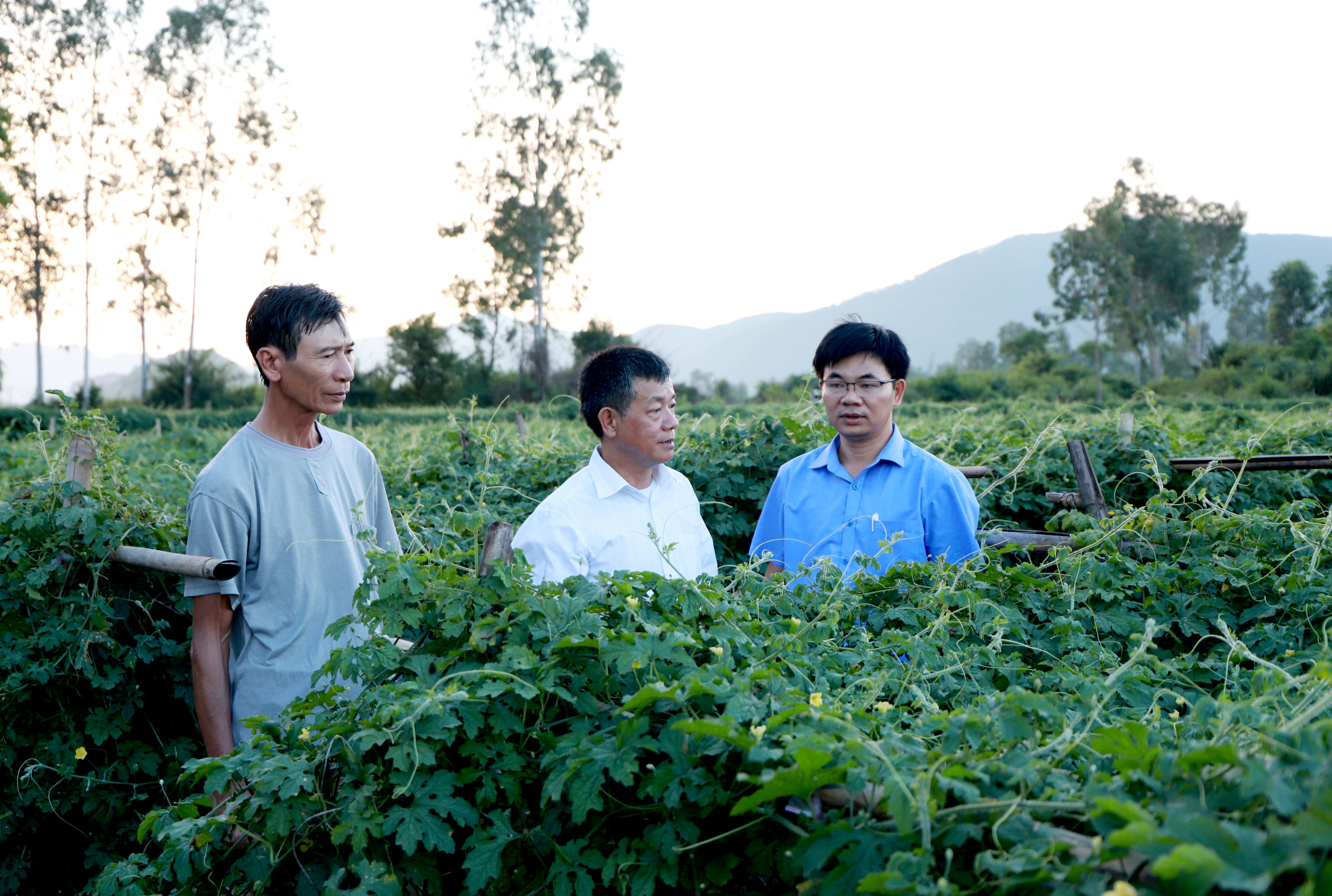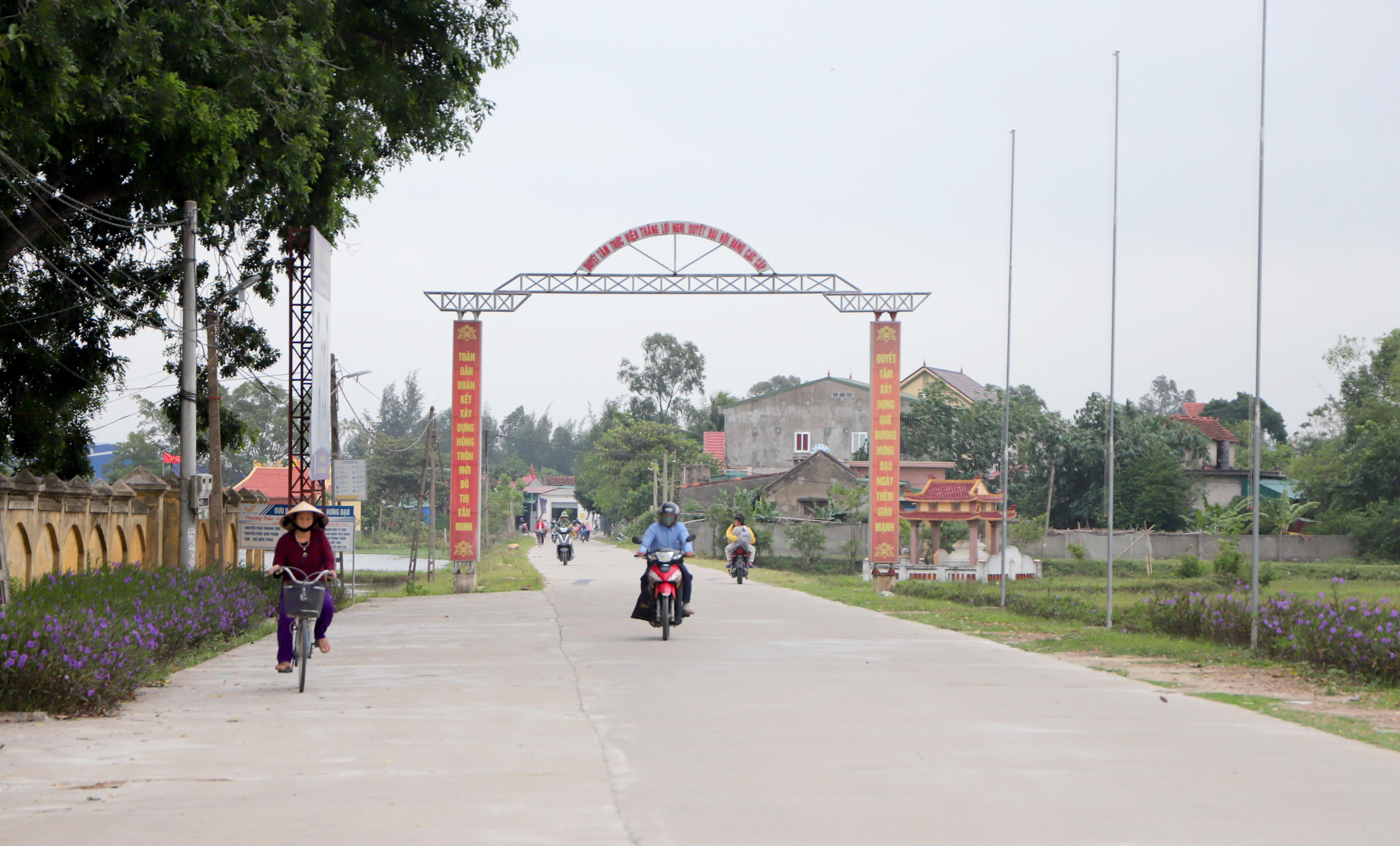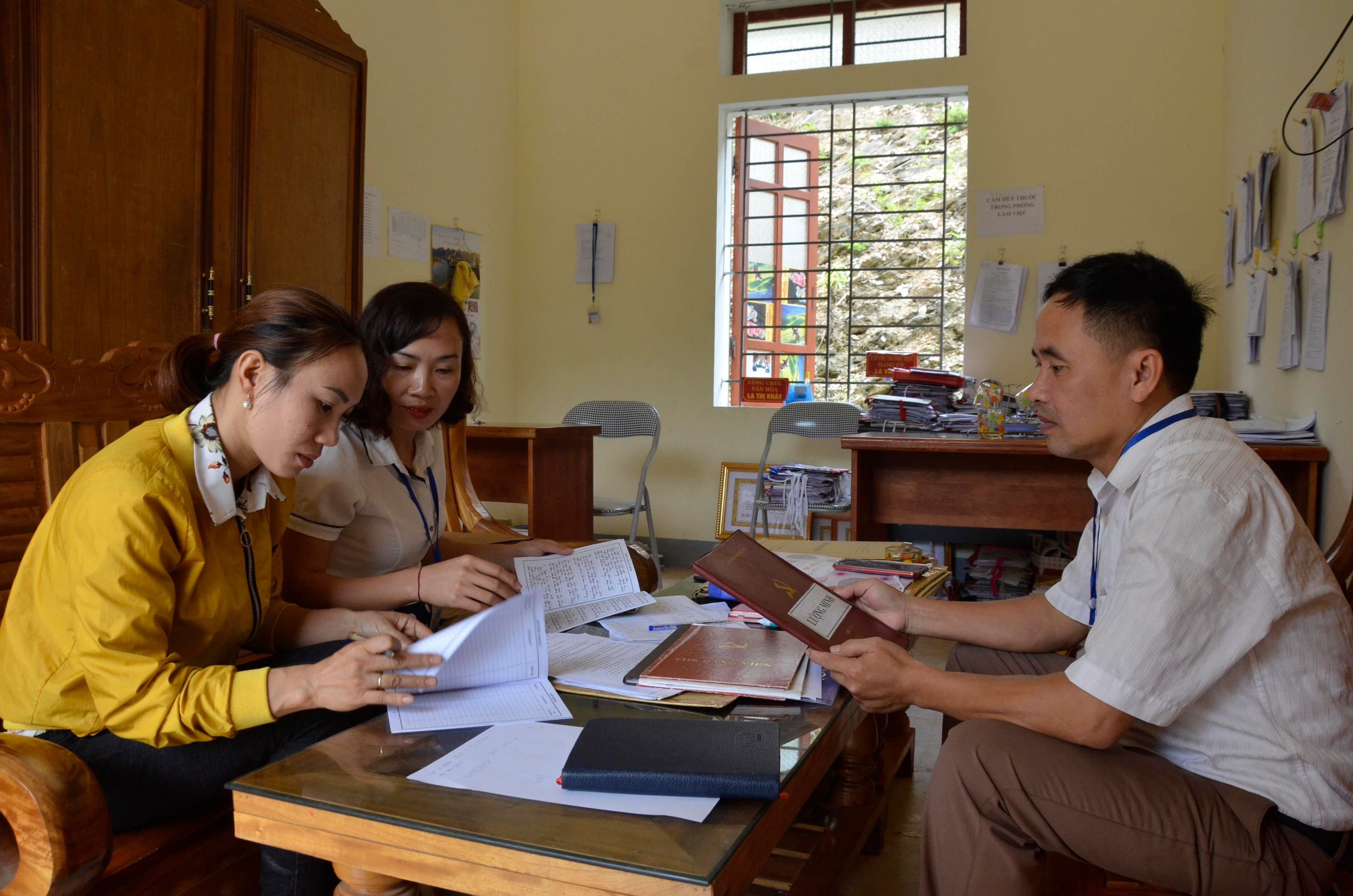Year-end assessment of cadres and party members: Identify appropriate manifestations of 'self-evolution' and 'self-transformation'
(Baonghean) - Along with issuing guidelines for annual quality review, assessment and classification of Party organizations, Party members, and collectives and individuals of leaders and managers at all levels, the Central Organizing Committee requires that the assessment and classification must be fair and objective, overcoming the situation of deference, avoidance, and fear of collision that does not reflect the true reality.
Increase initiative for the facility
According to the assessment from the grassroots, Instruction No. 16-HD/BTCTW dated September 24, 2018 of the Central Organizing Committee on annual review, assessment and classification of Party organizations, Party members and collectives, individual leaders and managers at all levels is basically consistent with the actual situation, contributing to specific and accurate assessment of Party organizations, Party members and collectives, individual leaders and managers at all levels. However, there are also certain shortcomings such as the regulations on subjects of assessment and classification of Party members are still many.
Party members who are civil servants, public employees, and those who receive salaries from the State budget have up to 5 subjects to evaluate together, in some cases the number of subjects to evaluate is more than 5 subjects if the party member also participates in political and social organizations. Comrade Nguyen Ngoc Bien - Deputy Head of the Organization Committee of Nghi Loc District Party Committee cited: A party member who is the secretary of the commune youth union, in addition to asking for opinions from 5 subjects according to regulations, also has to ask for evaluation opinions from the youth union branch (who are members of the youth union branch), evaluation opinions from the trade union (who are members of the commune trade union)... Therefore, it is difficult for the process of asking for opinions and synthesizing reports before evaluating and classifying party members.
 |
| Leaders of the Organizing Committee of Nghi Loc District Party Committee exchanged with cadres and people of Hamlet 2, Nghi Thuan Commune. Photo: Thanh Duy |
The assessment of manifestations in the spirit of the Central Resolution 4 (12th tenure) on Party building and rectification with 27 manifestations concretized into 82 contents, but the level only records "manifestation" and "no manifestation", making it difficult to make specific assessments and judgments. Because there are manifestations that only appear here and there, sometimes, sometimes or at a mild level, it will be difficult to determine whether there is a manifestation or not. Therefore, the vast majority of Party members receive the level of "no manifestation".
Based on the above practice, the Central Organizing Committee issued Instruction No. 21-HD/BTCTW (Instruction 21) dated October 18, 2019 guiding the annual review, assessment and classification of quality for Party organizations, Party members and collectives, individual leaders and managers at all levels to replace Instruction No. 16 - HD/BTCTW dated September 24, 2018 to overcome difficulties and obstacles in implementation in 2018 towards increasing initiative for the grassroots.
In Instruction 21, the appendix identifying 27 manifestations of degradation in ideology, politics, ethics and lifestyle, manifestations of "self-evolution" and "self-transformation" with specific manifestations was removed. At the same time, it was requested that provinces, cities and Party Committees directly under the Central Government provide guidance on identifying manifestations of degradation of "self-evolution" and "self-transformation" appropriately. The framework of standards and quality levels were also amended in the direction of specifying assessment criteria, quantifying the level of achievement according to the correct level: excellent, good, average, poor of each specific criterion to evaluate and classify quality more accurately.
"Collectives and individuals classified as having excellently completed their tasks must have many outstanding achievements, be innovative and creative, affirm their leading position, and be typical examples for other Party organizations to learn and follow. A number of important criteria and performance results must reach an excellent level."
 |
| Collectives and individuals who are classified as having excellently completed their tasks must have many outstanding achievements and be innovative. In the photo: A corner of the new rural area of Hung Dao commune (Hung Nguyen). Photo: TD |
Instruction No. 21 also temporarily suspends the participation in assessment and classification of subjects at the same level and at lower levels, only conducting assessment at higher levels by secret ballot and opinion collection. Regarding this task, the Central Organizing Committee requests that provinces, cities, and Party Committees directly under the Central provide guidance on the subjects and contents of collecting opinions of subjects participating in assessment at higher levels appropriately to have more basis for more accurate assessment and classification.
Some points to note to overcome some difficulties in the implementation in 2018 were also added such as: In case the transferred individual is a head who is not related to the classification level of the new organization, agency or unit, the regulation "The classification level of the head must not be higher than the classification level of the organization, agency or unit he/she heads" does not apply. For Party members who violate discipline in the Party organization where they previously worked but were disciplined and disciplined in the new Party organization they transferred to, it will be counted in the assessment and classification results of the Party organization where the violation occurred;... Instruction 21 only issued with 2 forms on collective and individual review instead of 6 forms like Instruction No. 16 in 2018.
Specify in accordance with the types of grassroots Party organizations
However, according to the leader of the Central Organizing Committee, Instruction No. 21 is only a framework, so provinces, cities, and affiliated Party Committees need to pay special attention to providing specific and detailed instructions and guidance appropriate to each type of Party organization, Party member group, and characteristics of the locality, each unit, and each field for effective implementation.
 |
| Nghe An Newspaper staff discuss Party work. Photo: TD |
On that basis, on October 28, 2019, the Provincial Party Standing Committee issued Plan No. 215-KH/TU to review collectives and individuals and annually evaluate, classify and reward Party organizations, Party members, collectives and individuals of leadership and management at all levels. Plan No. 215 provides regulations on the content, criteria, principles and methods of evaluating and classifying Party organizations at the grassroots and grassroots levels; collectives and individuals of leadership and management at all levels and evaluation and classification forms for Party Committees directly under the Provincial Party Committee so that Party Committees have a basis for evaluating, commenting and self-classifying. For Party Committees and grassroots Party cells directly under district, city, town Party Committees and Party Committees directly under the Provincial Party Committee, the districts, city, town Party Committees and Party Committees directly under the Provincial Party Committee shall review, adjust and supplement appropriate evaluation and classification forms for Party Committees and grassroots Party cells to self-evaluate and self-classify.
At the Party Committee of the Provincial Agencies (CCQ) Bloc, comrade Ho Thi Hong Lien - Head of the Organizing Committee of the Provincial CCQ Bloc Party Committee said: The grassroots Party organizations directly under the Party Committee are mainly in the form of party committees and grassroots party cells of agencies. Therefore, the Party Committee issued guidelines focusing on party building work in leading the implementation of political tasks associated with the tasks in the process of advising on mechanisms, policies, and functions of its sector, in leading the implementation of strong agencies and strong sectors, associated with building strong organizations and unions, especially administrative reform is one of the key features of this year.
 |
| The Party Inspection Committee of Luong Minh Commune (Tuong Duong) inspects and supervises the management of party members. Photo: Thanh Le |
The guidance of the Provincial Party Committee of the Provincial Agencies is based on the Central and Provincial framework, but is detailed at a higher level of requirements. “Especially for affiliated Party organizations that have excellently completed their tasks, they must have outstanding achievements, have creative innovations and affirm their leading and typical positions and roles; have specific products and specific reports on new points so that the Standing Committee of the Provincial Party Committee of the Agencies will appraise the results and seek opinions from many different channels before giving the classification results, especially the recognition of excellence”, said comrade Ho Thi Hong Lien.
Reviewing, self-criticizing, criticizing, evaluating and classifying the quality of collectives and individuals is difficult. Therefore, in order to improve the quality and ensure the true nature, Party committees, Party organizations and Party members need to thoroughly understand the importance of this work, overcome the situation of being respectful, avoiding, afraid of collisions and evaluation and classification that do not reflect the true nature. In particular, Party committees and Party organizations leading organizations, agencies and units, especially the heads, must seriously implement it and the superior Party committees must strengthen inspection, leadership, direction and urging of implementation. Only then can the quality of annual quality evaluation and classification be improved.
